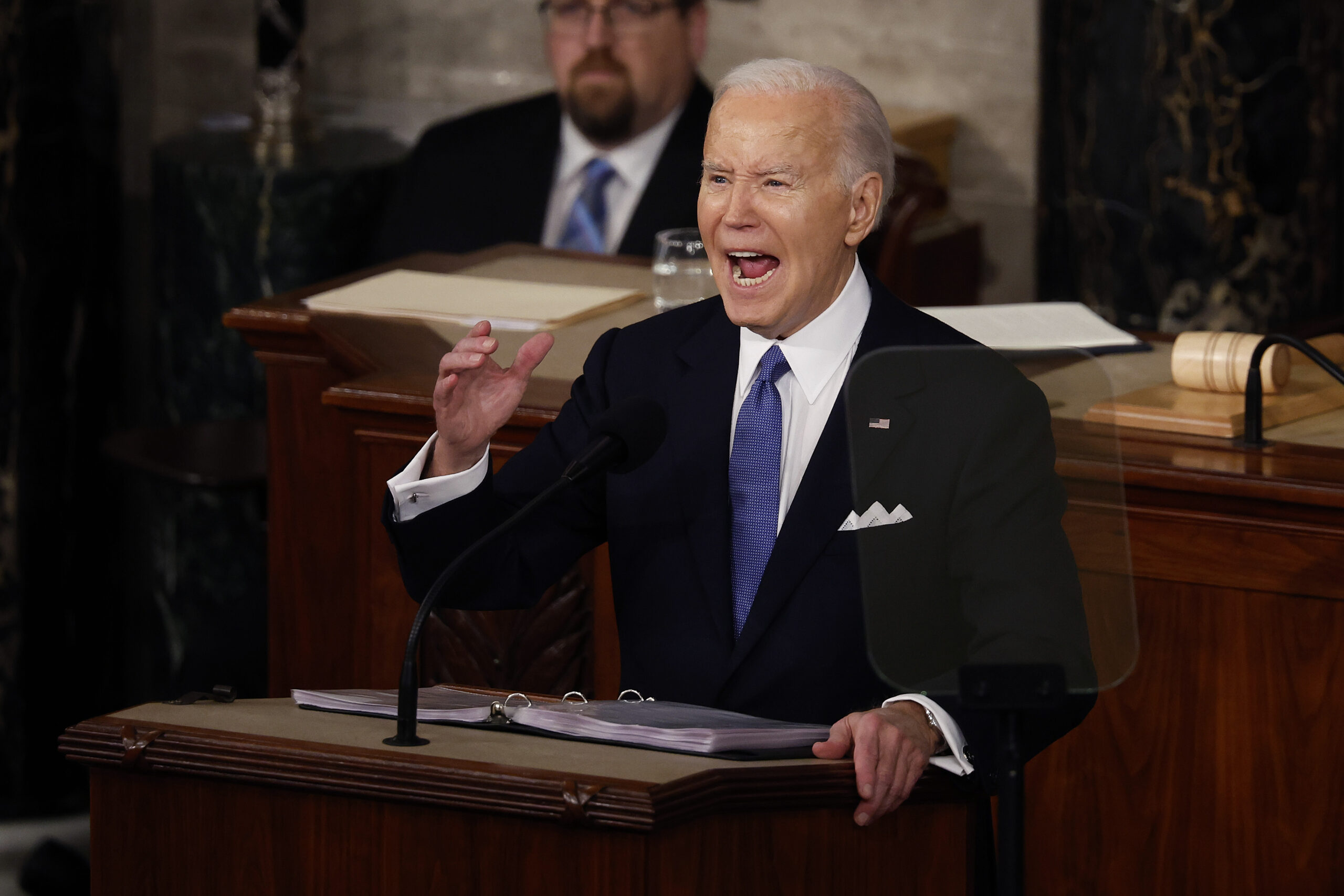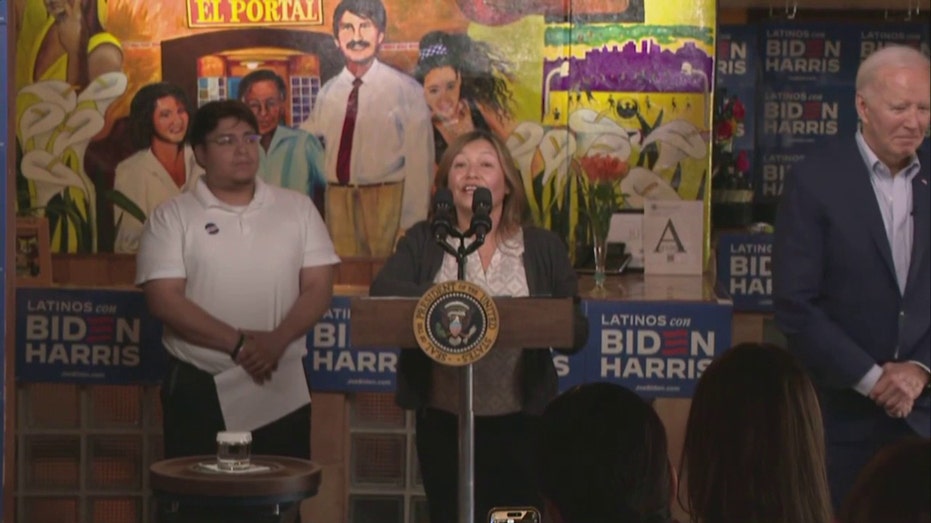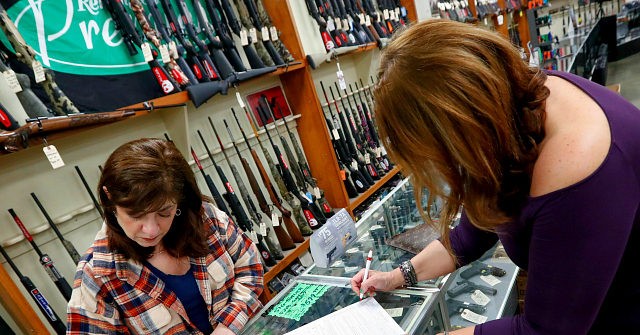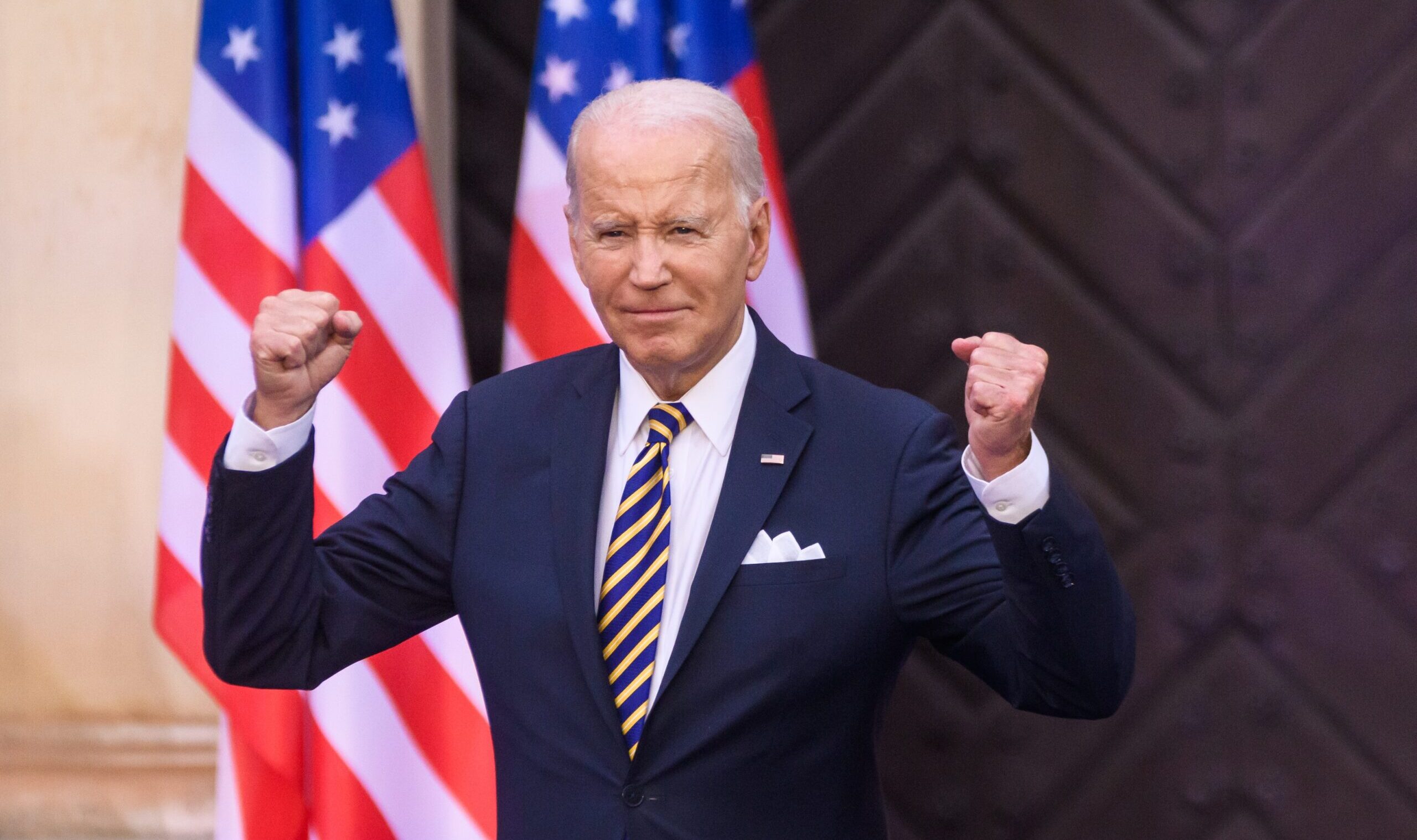Stop the Steel
U.S. Steel has agreed to be acquired by the Tokyo-based Nippon Steel, but will political pressure prevent this deal from going through? The post Stop the Steel appeared first on The American Conservative.
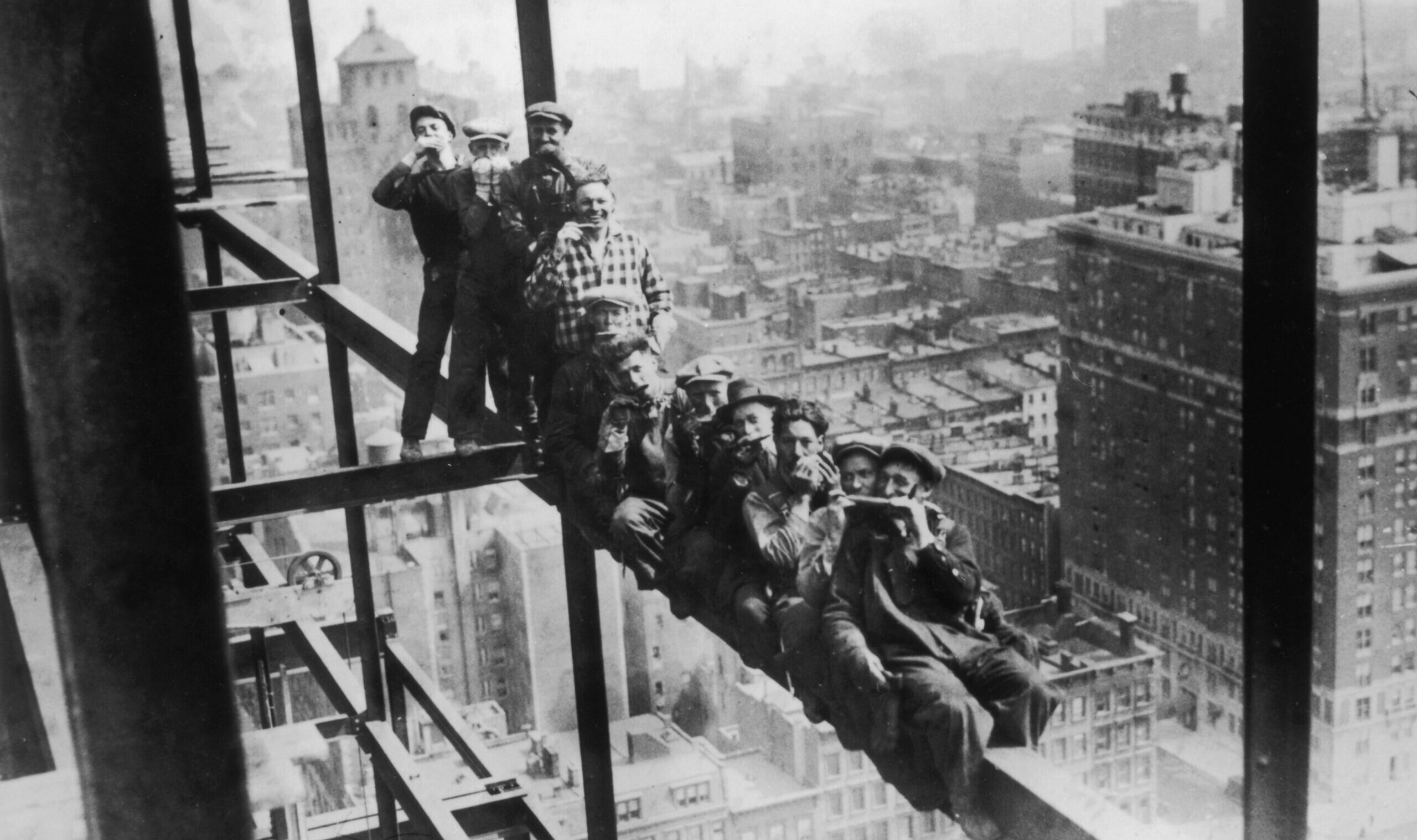
Stop the Steel
U.S. Steel has agreed to be acquired by the Tokyo-based Nippon Steel, but will political pressure prevent this deal from going through?

If the story of industrial America—the good, the bad, and the ugly—could be told through the story of a single company, that corporation would be U.S. Steel. In 1901, the financial titans J.P. Morgan and Charles Schwab financed a merger between the industrialists Andrew Carnegie, Elbert H. Gary, and William Henry “Judge” Moore. Carnegie’s Carnegie Steel Company, Gary’s Federal Steel Company, and Moore’s National Steel Company would combine to form the United States Steel Corporation, or U.S. Steel for short. The new corporation had a market cap of $1.4 billion; it was the first company in the world to surpass a valuation of $1 billion. By April, U.S. Steel was listed on the Dow Jones Industrial Average, an index used to track 30 of America’s most important companies, with the ticker symbol X.
U.S. Steel’s run on the DJIA lasted 90 years. On May 3, 1991, the X ticker was removed from the DJIA to make room for The Walt Disney Company. Three decades and some change later, the X ticker will be no more.
After 122 years in operation, news broke on Monday that U.S. Steel has agreed to be acquired by the Tokyo-based Nippon Steel for $14.1 billion. Nippon offered to pay U.S. Steel $55 a share, a startling premium of 40 percent. The announcement led to the price of U.S. Steel stock soaring over 25 percent to reach its highest price per share since April 2011. While X will no longer be listed on the NYSE, Nippon has claimed that U.S. Steel will retain its name, branding, and headquarters in Pittsburgh, Pennsylvania.
By purchasing U.S. Steel and its annual production capacity of 20 million metric tons, Nippon, already Japan’s largest steelmaker, will become the third-largest steel manufacturer in the world, behind only the China Baowu Steel Group and ArcelorMittal, a Luxembourg-based multinational corporation. Nippon will also get increased access to the American automotive industry, specifically specialized components used in the manufacturing of electric vehicles. Furthermore, Nippon will plan to take advantage of U.S. Steel’s role in the construction and appliance industry.
“The combination is good for the U.S. and creates a more competitive market here with one of the U.S.’s greatest allies,” U.S. Steel Executive David Burritt claimed on a call with investors on Monday, according to the Wall Street Journal. As for Nippon, Nippon Steel Executive Vice President Takahiro Mori said, “We believe we have found the life partner to accelerate our ambitions as the best steelmaker with world-leading capabilities.”
The sale to Nippon marks the close of a months-long process for U.S. Steel, which has been considering a number of offers from other steelmakers headquartered in the United States.
On July 28, Cleveland-Cliffs Inc. made an initial offer to U.S. Steel’s board, which would have paid a per-share value of $17.50 in cash and 1.023 shares of Cliffs stock. The total price per share was equal to $35.00 per share, a 42 percent premium on U.S. Steel’s stock price at market close for July 28.
U.S. Steel rejected that initial offer on August 13. Over those two weeks, talks between the U.S. steel producers fell apart when Cleveland-Cliffs refused to sign a nondisclosure agreement (NDA) that would allow the two companies to share more financial information. U.S. Steel claimed that Cleveland-Cliffs demanded U.S. Steel to accept the terms of the deal before signing the NDA, but signing the NDA was necessary to evaluate the value of stock Cleveland-Cliffs was going to use to partially pay for the purchase of U.S. Steel.
“On July 28th I approached U.S. Steel’s CEO and Board with a written proposal to acquire U.S. Steel for a substantial premium, valuing the company at $35.00 per share with 50% cash and 50% stock. After two weeks without any substantive engagement from U.S. Steel with respect to the economic terms contained in our compelling proposal, U.S. Steel’s board of directors rejected our proposal, calling it ‘unreasonable,’” Lourenco Goncalves, the chairman, president, and CEO of Cleveland-Cliffs, said at the time.
Furthermore, Goncalves suggested Cliffs would be the best company to buy U.S. Steel because many of each companies’ workers are represented by the United Steelworkers union (USW). “Our proposal has the full support of the United Steelworkers union. This is a testament to our unwavering commitment to our employees—which would number approximately 40,500 pro forma for the transaction—as well as to the communities in which we operate,” Goncalves claimed. “We have proven in our previous M&A transactions our strong track record of significant value creation and our ability to grow the business through the addition of thousands of union jobs. Finally, with this transaction we will create the only American member of the Top 10 steel companies in the world, joining a select group of just three other companies outside of China—one European, one Japanese and one Korean.”
Though U.S. Steel rejected Cleveland-Cliffs’ offer, Goncalves said, “I do look forward to continuing to engage with U.S. Steel on a potential transaction, as I am convinced that the value potential and competitiveness to come out of a combination of our two iconic American companies is exceptional.”
After U.S. Steel rejected Cleveland-Cliffs’ deal, another U.S. based steel company quickly made an offer to buy U.S. Steel. Esmark announced on August 14, the day after U.S. Steel’s rejection of Cleveland-Cliffs’ deal went public, that it had submitted an offer to buy U.S. Steel for $35 a share in cash, an equity value of $7.8 billion. Ten days later, Esmark scrapped its bid after it failed to get the USW to support its bid over Cliffs’ bid. “The U.S. Steel board must go through their process that they previously announced (adding) we will evaluate any opportunities in connection with that process, subject to support from the USW,” Esmark CEO Jim Bouchard, a former U.S. Steel executive, said in a statement.
U.S. Steel also reportedly passed on an offer made by ArcelorMittal. Though the details of this offer are less well known, ArcelorMittal reportedly secured financing that would have allowed the Luxembourg-based firm to pay $45 a share in cash.
In the end, U.S. Steel opted to go with Nippon over others like Cleveland-Cliffs, which continued its efforts to find agreeable terms after U.S. Steel’s initial rejection. The $14.1 billion deal is expected to close in October 2024, but will first need the approval of regulators and U.S. Steel shareholders. The sale of a storied U.S. company in an industry vital to America’s economic and national security has already raised eyebrows in Washington.
“Today, a critical piece of America’s defense industrial base was auctioned off to foreigners for cash,” a Monday statement from Senator J.D. Vance of Ohio read. “I warned of this outcome months ago and will oppose it in the months ahead. U.S. Steel announced the sale by celebrating the ‘certain and immediate value’ to be delivered to its shareholders. But rest assured that I will interrogate the long-term implications for the American people, and I will do everything in my power to protect the future of our nation’s security, industry, and workers.”
When news first broke in August that U.S. Steel was considering offers to sell itself, which the company claims were unsolicited, Vance penned a letter to Burritt, urging the U.S. Steel president to reject offers from foreign companies. “As a United States senator, my interest is in the security and prosperity of my country and my constituents. Enabling domestic steel production is vital to both,” Vance wrote. “As the second largest integrated steelmaker in the country and a giant of American industry, the future of U.S. Steel will be consequential for the future of the U.S. steel industry. I fear that the strategic review could undermine our national security if mismanaged.”
“As you evaluate offers to acquire U.S. Steel or any of its assets, I urge you to balance properly your duty to your shareholders and the interests of your country,” Vance continued. “I ask that you consider the effects of any decision to America’s industrial base and national security and insist that you reject any bids to acquire U.S. Steel or its assets from a foreign entity.”
“What it comes down to is that control of assets matters,” American Compass Executive Director Oren Cass told The American Conservative. “And it matters in a few ways. One is it matters because what you see is, generally speaking, where corporations are headquartered, where senior management is, where the profits ultimately flow to, tends to determine a lot about the health of the local community. Pittsburgh’s football team is literally named the Steelers, and there’s a reason the Pittsburgh Steelers’ logo used to be the U.S. Steel logo, right?”
“Beyond that, you ultimately have a problem where Nippon steel, itself a recipient of massive industrial subsidies and support from the Japanese government, has no concern for the interests of American workers, or for that matter, the well being of America,” Cass continued. “To pretend that there’s no relationship between who owns and controls and makes decisions about our most vital industrial assets and what the outcome for those assets is going to be is just bizarrely naive.”
“Ultimately, what you have here is an actual trade going on where the rest of the world including Japan sent us lots of cheap stuff, and rather than make stuff, for instance, steel, that we could send back to them in return, we are sending back control of U.S. Steel,” he said. “That sort of format of exchange is one that very directly weakens American economic sovereignty, and when you aggregate that across numerous transactions—trillions of dollars of transactions over a decade—you basically hand future control of the U.S. economy over to foreigners, and that seems like a really bad idea.”
In a September op-ed for the Washington Post, Vance wrote about the Revlon doctrine, named after the 1986 decision by the Delaware Supreme Court, and the effect it has had on mergers and acquisitions.
“If [U.S. Steel] falls into the wrong hands, our industrial base and national security could be at risk. But the corporation’s board is unlikely to care about that, because legally it’s not required to — thanks to a 37-year-old doctrine of American corporate law,” Vance argued. “As the Delaware Supreme Court explained, the role of board directors changes ‘from defenders of the corporate bastion to auctioneers charged with getting the best price for the stockholders at a sale of the company.’ All other interests or obligations must be set aside.”
“The way that we do corporate law in this country, the U.S. Steel board is not supposed to consider anything except the price,” Cass said, referring to the Vance op-ed.
“It’s worth taking a moment to interrogate the deeper strangeness of a company selling itself,” Cass continued. “In theory, in a market there are shares on the market and if someone wants to buy the shares they can. The idea that you would want to have a board saying ‘we are now putting ourselves up for sale and we’ll accept offers’—as opposed to what when you weren’t accepting offers?” Cass explained. “The entire structure of the corporate transactions looks nothing like an actual market or an attempt at optimizing for efficiency or anything else. It’s a battle for corporate control and really doesn’t deserve any of the deference we try to apply to market transactions.”
“In hindsight, the steel industry was but the canary in the coal mine, the first victim of what a growing consensus now recognizes as deindustrialization wrought by hostile foreign competition,” the Ohio Senator continued. “But the plight of this once-dominant corporation reveals how American industrial might can be undermined by forces both foreign and domestic—including our very laws.”
On Tuesday, Vance, accompanied by Senators Josh Hawley of Missouri and Marco Rubio of Florida, sent a letter to Treasury Secretary Janet Yellen, imploring Yellen to block the sale of U.S. Steel to Nippon.
“Trade protections can and should induce foreign investment that expands domestic production and creates American jobs. This corporate takeover is out of step with those goals. Allowing foreign companies to buy out American companies and enjoy our trade protections subverts the very purpose for which those protections were put in place,” the Senators claim. “The problems with this transaction run even deeper than that, however. [Nippon] does not share U.S. Steel’s storied connection to the United States, and its financial interests are tied into those of Japan. Earlier this year, NSC received more than $3 billion in subsidies from Japan’s Ministry of Economy, Trade, and Industry. And [Nippon] has even flouted American trade law. As recently as August 2021, NSC was found guilty of unlawfully dumping flat-rolled steel products into the U.S. market.”
“This acquisition is not occurring in a vacuum,” Vance, Hawley, and Rubio continued. “The United States has run a trade deficit for nearly half a century. Our cumulative trade debt now stands at more than $14 trillion. Over the last five years, we have run an average annual trade deficit of more than $65 billion with Japan alone. One of the promised benefits of such unbalanced trade is that we run a capital account surplus: we import the world’s goods, and they consume our financial assets in return. In theory that may sound fine. But issues become apparent when those financial assets include critical pieces of the American industrial base.”
No worries—as long as the line goes up, it will all end up just fine. “One of the weirdest and ultimately dumbest arguments that has come out about the sale of U.S. Steel is this idea that U.S. Steel was a failing company or that industrial policy failed, and that’s why it had to sell itself when that’s not the nature of the transaction at all,” Cass said of the libertarians cheering on Nippon’s acquisition of U.S. Steel. If that were true, he said, “the question would be, why does Nippon want to buy U.S. Steel?”
Whether globalization will claim another victim remains to be seen. The White House has stated that President Joe Biden thinks the deal deserves “serious scrutiny” from government regulators. “This looks like the type of transaction that the interagency Committee on Foreign Investment Congress empowered and the Biden administration strengthened is set up to carefully investigate,” Lael Brainard, the director of the National Economic Council, claimed. “This administration will be ready to look carefully at the findings of any such investigation and to act if appropriate.”
For the past three years, America has been in a panic about its reliance on Taiwan for semiconductor chips after the Covid-19 pandemic previewed what life could be like if supply chains was squeezed. Some believe it might even be necessary to make war on China to secure American access to these chips. If such a terrible thing does come to pass, does America want this vital industry’s decisions made in Pittsburgh or Tokyo?
The post Stop the Steel appeared first on The American Conservative.
What's Your Reaction?








